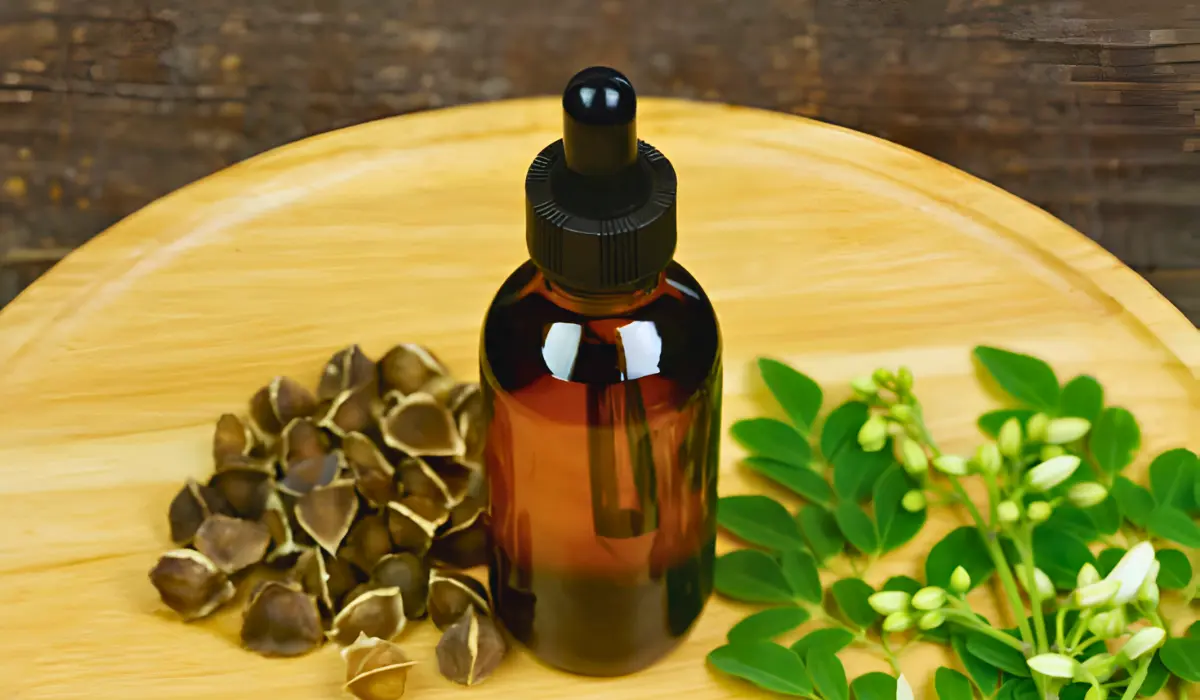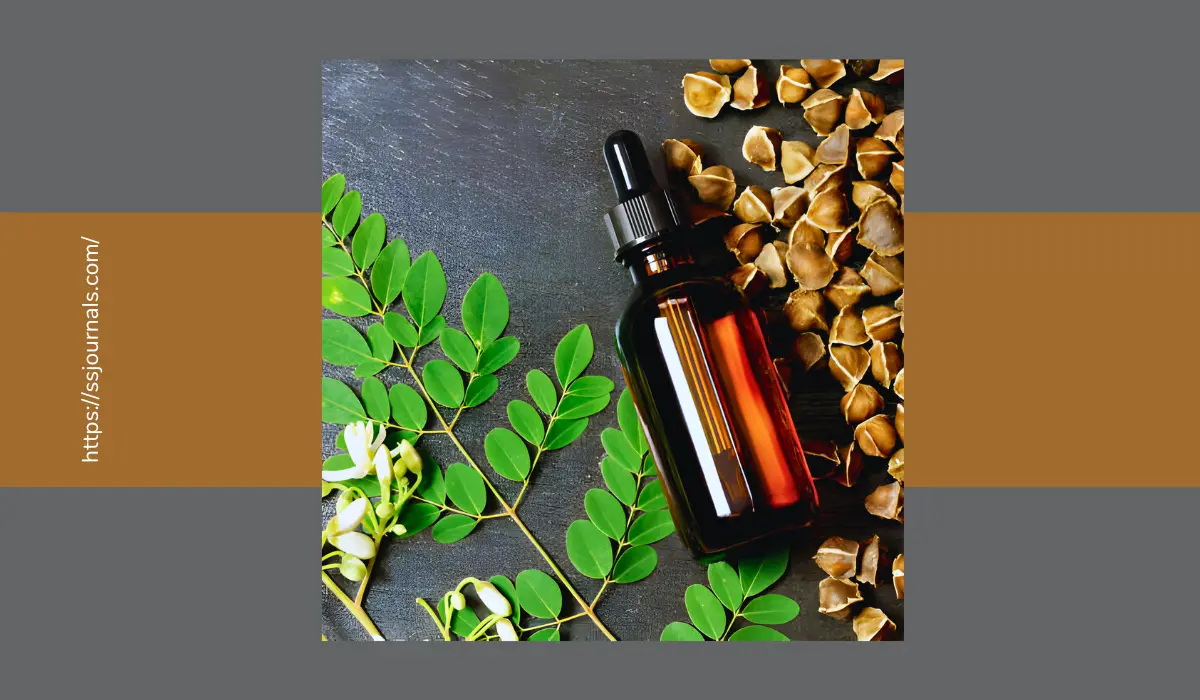Moringa oil offers numerous benefits for skin health, including deep moisturization, anti-inflammatory properties, and anti-aging effects. It’s rich in antioxidants and fatty acids, making it a versatile addition to your skincare routine.
Have you ever heard of moringa oil? It’s a natural wonder that’s been used for centuries in traditional medicine, but it’s only recently gained attention in the world of skincare. Derived from the seeds of the moringa tree, this oil is packed with nutrients and health benefits that can do wonders for your skin.
From reducing inflammation to fighting signs of aging, moringa oil is a versatile and powerful ingredient that deserves a spot in your skincare routine. In this article, we’ll dive into the science behind moringa oil and explore how it can help you achieve a healthy, glowing complexion. So, let’s get started on this journey to discovering the magic of moringa oil!
The Composition of Moringa Oil
Moringa oil is derived from the seeds of the moringa tree, which is native to parts of Africa and Asia. The oil is extracted through a process of cold-pressing, which helps to preserve its natural nutrients and properties.

One of the key components of moringa oil is oleic acid, a type of monounsaturated fatty acid that makes up about 73% of the oil’s composition. Oleic acid is known for its ability to penetrate deep into the skin, providing intense moisture and nourishment.
In addition to oleic acid, moringa oil also contains other beneficial fatty acids like linoleic acid, palmitic acid, and stearic acid. These fatty acids work together to strengthen the skin’s natural barrier, helping to protect it from environmental stressors and damage.
Moringa oil is also rich in antioxidants like vitamin C, vitamin E, and flavonoids, which help to fight free radicals and prevent premature aging.
Skin Health Benefits Of Moringa Oil
So, how exactly does moringa oil benefit skin health? Let’s take a closer look at some of its key properties and effects on the skin.
Moisturizing and Nourishing
One of the most significant benefits of moringa oil is its ability to deeply moisturize and nourish the skin. Thanks to its high content of oleic acid and other fatty acids, moringa oil can penetrate deep into the skin’s layers, providing long-lasting hydration and preventing moisture loss. This makes it an excellent choice for people with dry, dehydrated, or sensitive skin.
Anti-Inflammatory Properties
Moringa oil also has potent anti-inflammatory properties, which can help to soothe and calm irritated or inflamed skin. This is particularly beneficial for people with conditions like acne, eczema, or psoriasis, as it can help to reduce redness, swelling, and discomfort.
The antioxidants in moringa oil, such as vitamin C and flavonoids, also contribute to its anti-inflammatory effects.
Anti-Aging Benefits
Another key benefit of moringa oil is its ability to fight signs of aging, such as fine lines, wrinkles, and age spots. The antioxidants in moringa oil help to neutralize free radicals, which are unstable molecules that can damage skin cells and accelerate the aging process.
By protecting the skin from oxidative stress, moringa oil can help to maintain a youthful, radiant complexion.
Additionally, the oleic acid in moringa oil can help to stimulate collagen production, which is essential for maintaining skin elasticity and firmness. As we age, our body’s natural collagen production declines, leading to sagging skin and wrinkles. By boosting collagen synthesis, moringa oil can help to plump up the skin and reduce the appearance of fine lines.
Balanced Sebum Production
Moringa oil can also help to regulate sebum production in the skin. Sebum is the natural oil produced by our skin’s sebaceous glands, and it plays a crucial role in maintaining the skin’s protective barrier. However, when sebum production is imbalanced, it can lead to issues like oiliness, clogged pores, and acne.
Moringa oil can help to balance sebum production by providing the skin with the right amount of moisture and nourishment. This can help to prevent both excessive oiliness and dryness, promoting a healthy, balanced complexion.
Soothing and Healing Properties
In addition to its moisturizing and anti-inflammatory properties, moringa oil also has soothing and healing effects on the skin. It can help to calm and comfort irritated or sensitive skin, making it an excellent choice for people with conditions like rosacea or dermatitis.
Moringa oil also has natural antimicrobial properties, which can help to prevent the growth of bacteria and other microorganisms on the skin. This can be particularly beneficial for people with acne-prone skin, as it can help to reduce breakouts and promote clearer, healthier-looking skin.
How to Use Moringa Oil in Your Skincare Routine?
Now that we’ve explored the many health benefits of moringa oil for the skin, let’s talk about how you can incorporate it into your skincare routine.
One of the easiest ways to use moringa oil is as a moisturizer. Simply apply a few drops of the oil to your face and neck after cleansing and toning, and gently massage it into your skin. You can use it on its own or mix it with your favorite moisturizer for an extra boost of hydration.
Moringa oil can also be used as a serum, either on its own or mixed with other beneficial ingredients like vitamin C or hyaluronic acid. Apply the serum before your moisturizer to help it penetrate deeper into the skin.
If you have particularly dry or damaged skin, you can use moringa oil as an overnight treatment. Apply a generous amount of the oil to your face and neck before bed, and let it work its magic while you sleep. In the morning, rinse it off with warm water and follow up with your usual skincare routine.
Conclusion
In conclusion, moringa oil is a true superfood for the skin, offering a wide range of health benefits that can help you achieve a healthy, radiant complexion. From its moisturizing and nourishing properties to its anti-inflammatory and anti-aging effects, moringa oil is a versatile and powerful ingredient that deserves a spot in your skincare routine.
Whether you have dry, sensitive, or acne-prone skin, moringa oil can help to soothe, heal, and protect your skin from damage. So why not give it a try and see the difference it can make for your skin?
We’d love to hear from you – have you ever used moringa oil in your skincare routine? What benefits have you noticed for your skin? Share your experiences and thoughts in the comments below!

